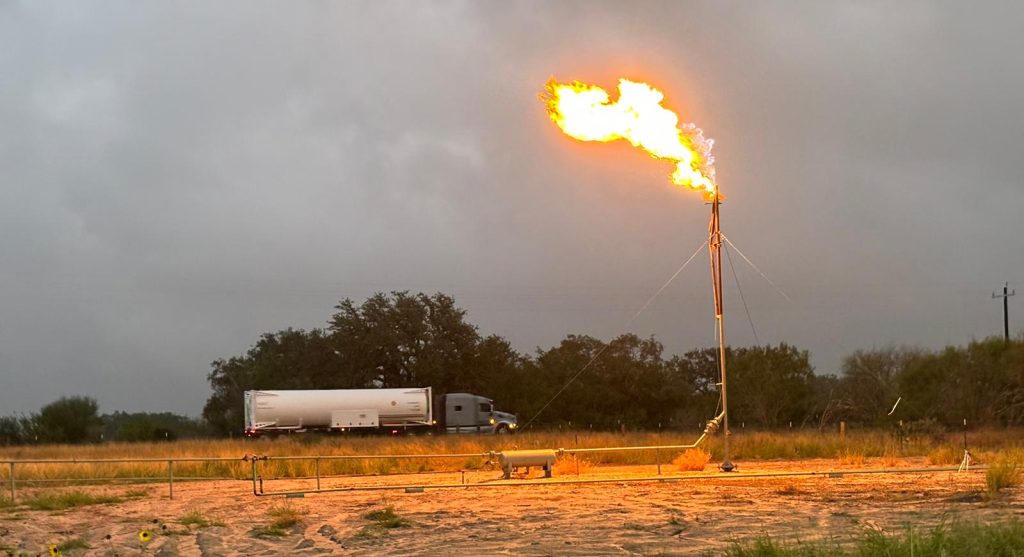Whitepaper: Carbon Negative Fuel Sources for EV Charging


As the world accelerates towards decarbonization, one of the most promising opportunities lies in harnessing waste products like flare gas a by-product of oil extraction that is often burned at wellheads, contributing significantly to environmental pollution. Macaw Energies and L-Charge have teamed up to transform this harmful by-product into a sustainable fuel source for electric vehicle (EV) charging, offering a scalable and carbon-negative solution.
Flare gas is a major contributor to global greenhouse gas (GHG) emissions, releasing methane, carbon dioxide, and other harmful pollutants when burned. This practice accounts for an estimated 400 million tons of CO₂-equivalent emissions annually worldwide. Traditionally, flare gas has been seen as a waste product, but Macaw Energies has developed a ground-breaking solution to turn this waste into a valuable resource.
Macaw Energies’ LIQUIDFLARE technology captures flare gas and converts it into a clean, liquefied natural gas (LNG) fuel with a verified well-to-pump carbon intensity of -43 kg CO₂e/mmBtu. This negative carbon intensity means that the process avoids emissions by actively preventing greenhouse gases from getting in to the atmosphere.
L-Charge has successfully integrated LIQUIDFLARE as a fuel source for its charging stations. A recent deployment in Houston illustrates this approach, where L-Charge introduced an off-grid charging station powered by LIQUIDFLARE to serve an electric ride-sharing fleet. This installation showcases how tailored fuel solutions can enhance both sustainability and cost efficiency.
The partnership between Macaw Energies and L-Charge highlights the transformative potential of combining low-carbon technologies with carbon-negative fuels. LIQUIDFLARE’s portability and versatility make it suitable for applications beyond EV charging, including logistics, industrial power generation, and powering data centers.
By turning a waste product like flare gas into a valuable commodity, LIQUIDFLARE not only reduces environmental pollution but also creates opportunities for cost savings and revenue generation across industries. This innovative approach to waste management and clean energy integration offers a clear path toward achieving decarbonization goals, supporting critical infrastructure, and securing a sustainable future.
As industries worldwide face increasing pressure to reduce emissions, solutions like LIQUIDFLARE provide a closed-loop approach to repurposing waste streams into clean energy sources.